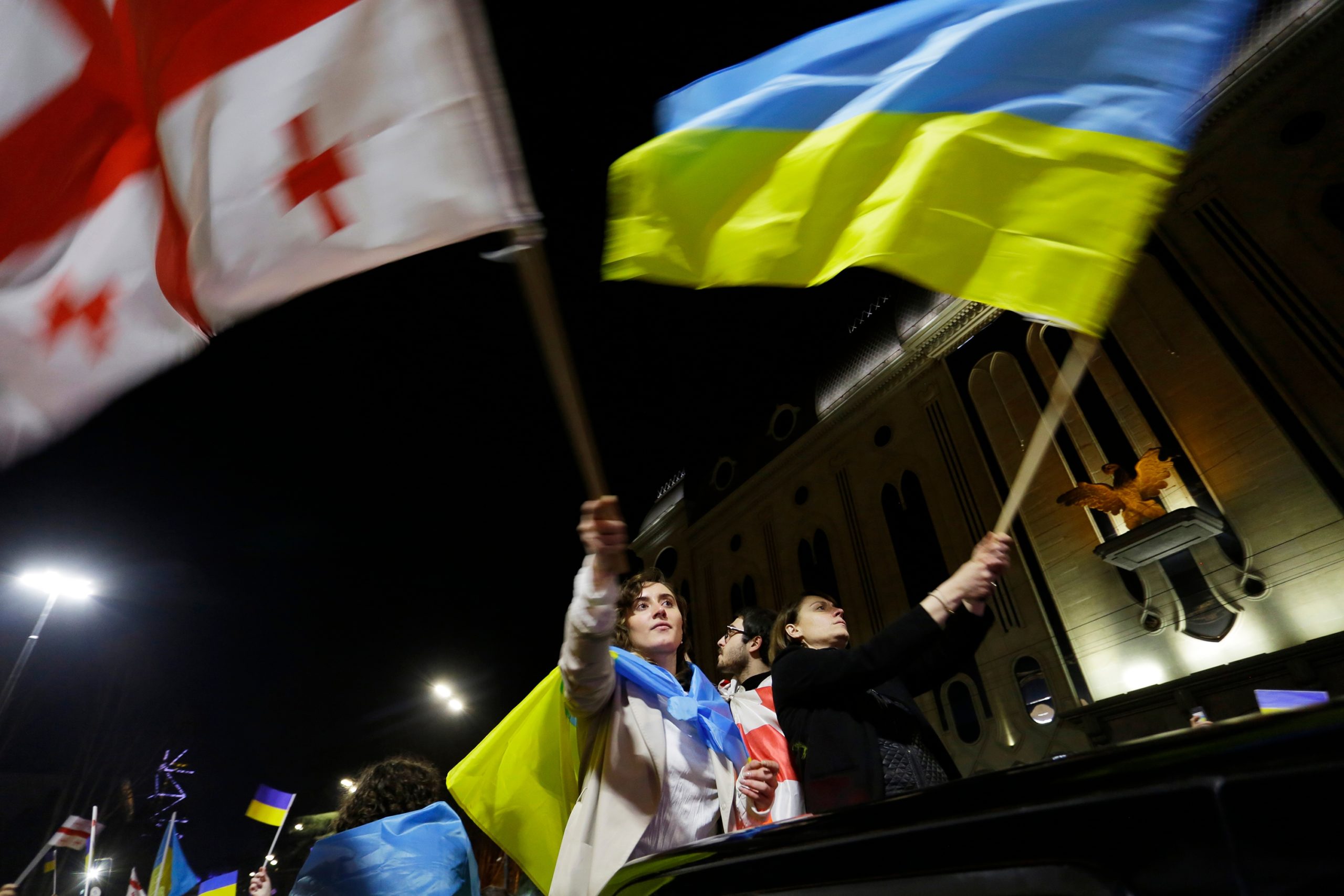
While Ukraine can congratulate itself on having received the approval of the European Commission to apply officially for EU membership, this is not the case for Georgia, which had wanted to go down the same path.
Relations between Russia and Georgia have been tense for many years, following the conflict between the two states in 2008 when the Republic of South Ossetia attempted to secede and join the Russian Federation. It is in order to protect itself from the ambitions of its neighbour that Georgia wishes to join both the European Union and NATO. In 2009, NATO heads of state issued a joint declaration stating that both Georgia and Ukraine were destined to become NATO members, but without specifying a timetable.
Georgia hoped to benefit from the enthusiasm for Ukraine’s process of entry into Europe. But while the European Commission decided on Friday, June 17th, in favour of Ukraine and Moldova’s application, it advised that Georgia’s application should be postponed. It stated that the file was not closed, but held that the matter should merely be retabled by the end of 2022 at which point the Commission will “assess how Georgia meets the number of conditions before granting its candidate status.”
This news has provoked anger and frustration among Georgians, who deplore the preferential treatment given to Ukraine and fear that Russia will attack them again. Since the beginning of the conflict between Ukraine and Russia, Georgia has feared that it might be one of Putin’s next victims.
On Monday, June 20th, thousands of demonstrators took to the streets of the capital, Tbilisi, in protest. According to AFP, at least 120,000 participants were counted, making it the largest demonstration in Georgia for decades. Signs reading “We are Europe” were held up by the population, while the official European anthem Ode to Joy was played. Almost all Georgian parties, from the Right and the Left, supported the demonstration. One of the organisers, Sota Digmelashvili, told the press that this was only a first meeting for him, but that other gatherings were planned in the long term, to give birth to a pacifist movement of popular mobilisation. Georgian Dream party leader Irakli Kobakhidze criticised Brussels’ decision, saying that in many ways Georgia was in a better position than Ukraine and Moldova to meet the EU’s criteria.
President Ursula von der Leyen insisted that the door was still open for Georgia, but that the country needed to undertake many reforms before it could hope to go further, especially in terms of “de-oligarchisation.” Prime Minister Irakli Garibashvili agreed with von der Leyen’s decision on Friday, and welcomed “the historic decision to grant Georgia European perspective.” He affirmed his willingness to work with Brussels to “implement all the requirements necessary for candidate status.”
In parallel, Georgia has signed a series of economic and political agreements to strengthen its ties with the other two candidate states, Ukraine and Moldova.
